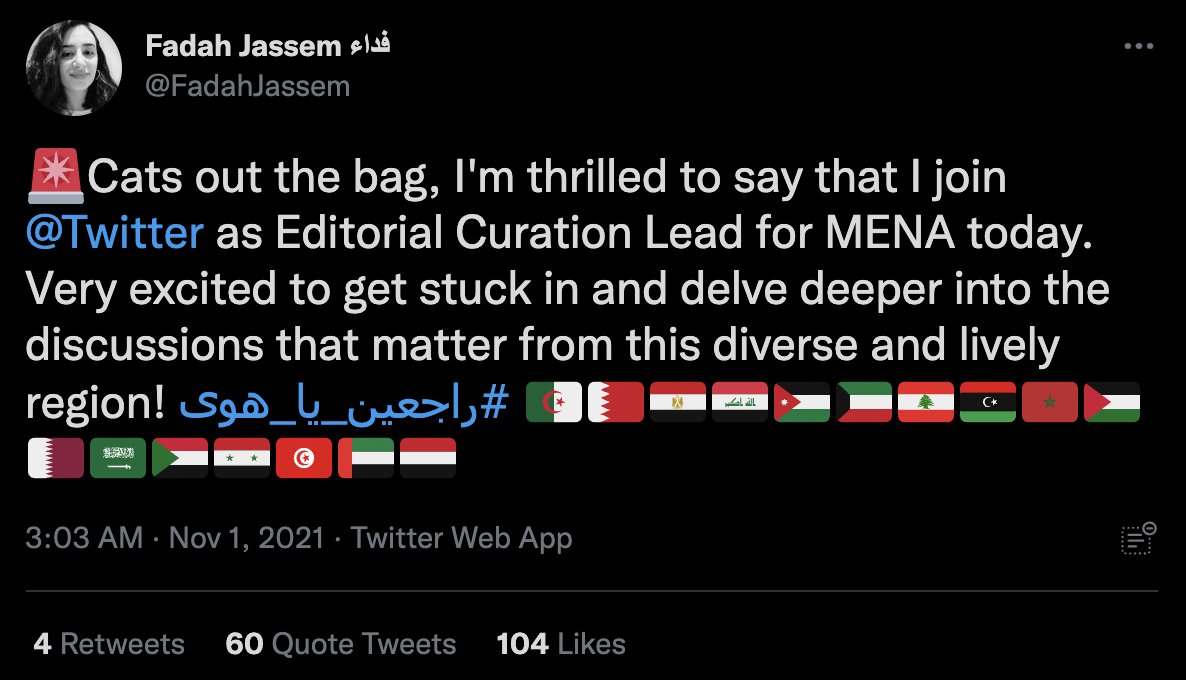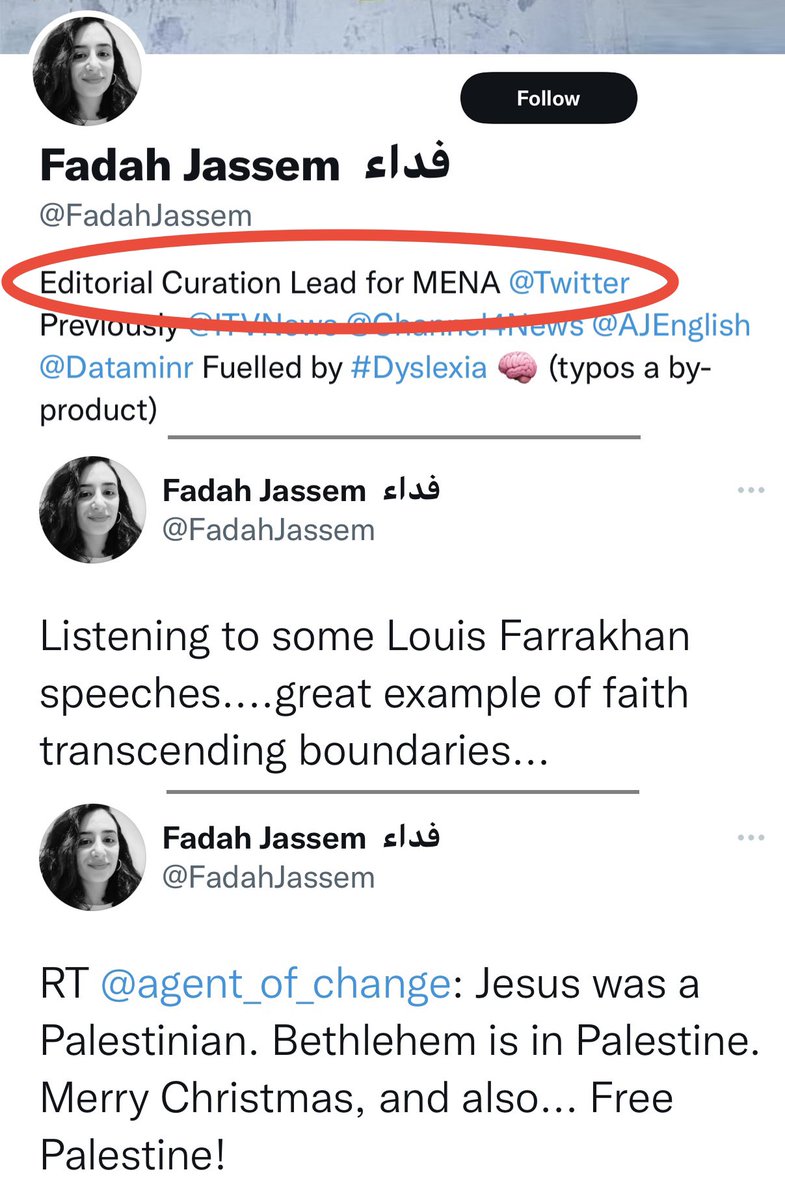
An unusual Somali Qur’an section, copied in a script quite distinct from the majuscule Arabic scripts used either along the Swahili coast or in West Africa, carefully but austerely written by an unnamed holy man in the town of Afgoi in the late 19th or early 20th century. 1/ 

The text is presented as a continuous block, 10 lines of thick majuscule per page, intended for a reader familiar enough with the Qur’an that it foregoes division markers of any kind - there are no marginal division markers, surah headings, or verse markers. 2/ 

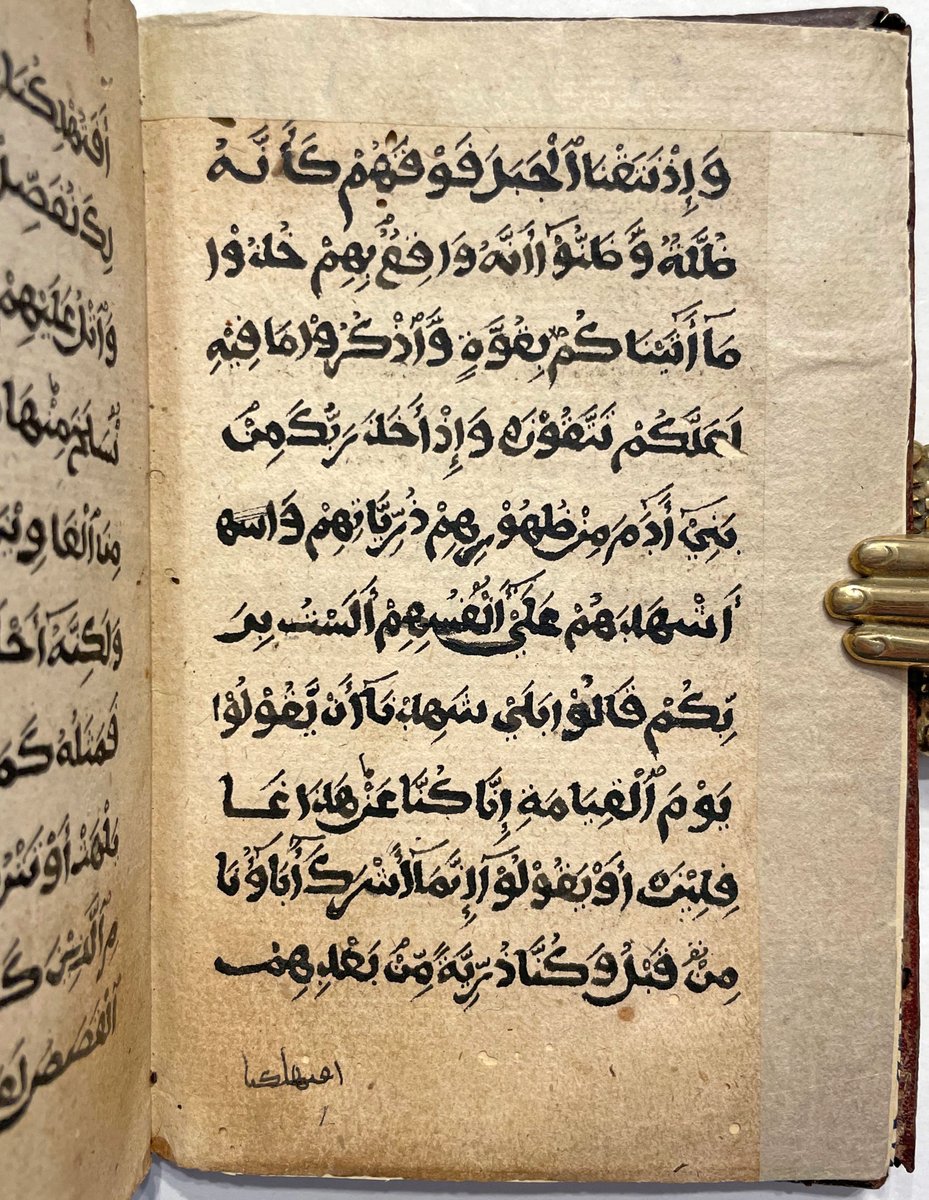
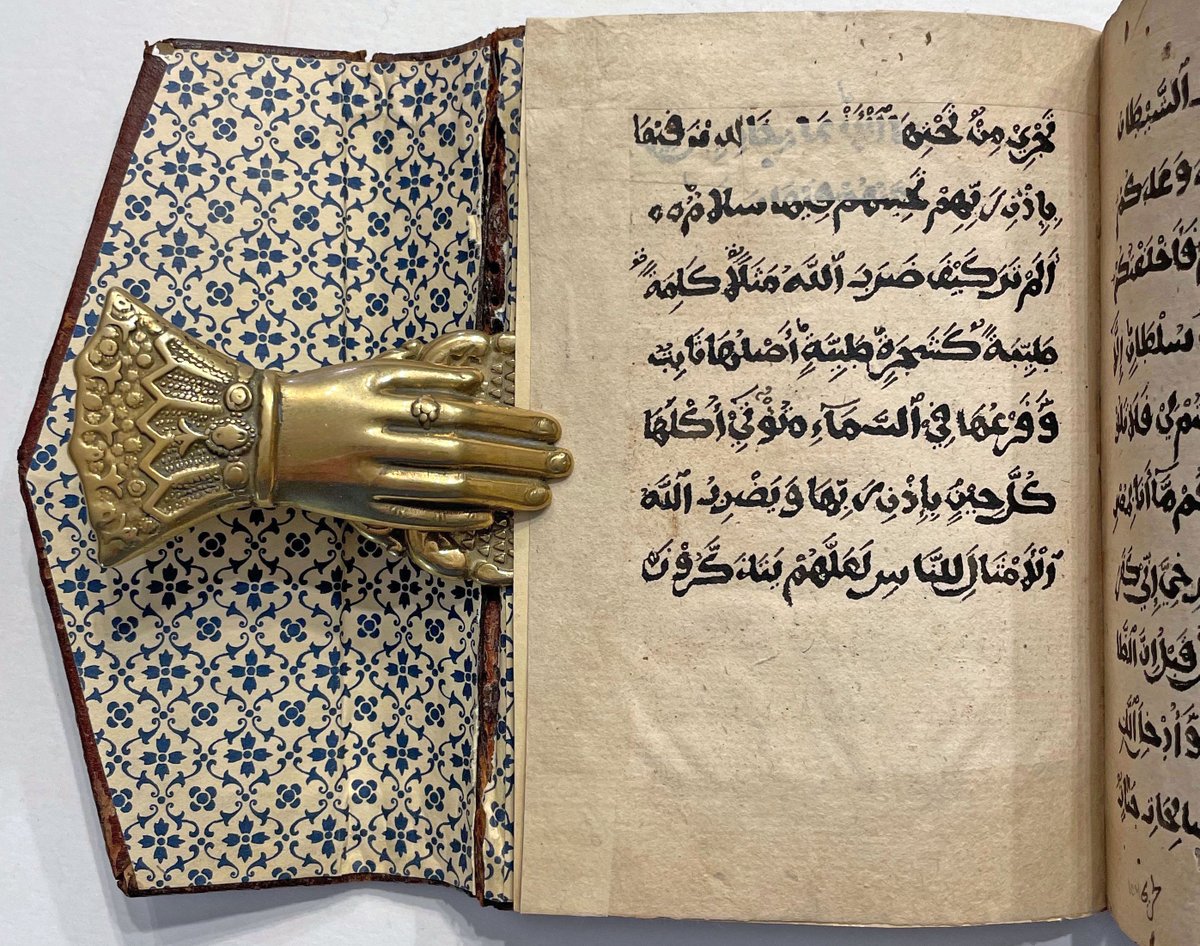
There's a half-page of Arabic prayers on f.1r and two Italian inscriptions at the end: the first records that this Qur’an section was copied by a holy man in the town of Afgoi in Nov. 1911; the second is a presentation inscription from Dr. Carlo Bottari, dated 17 August 1912. 3/ 


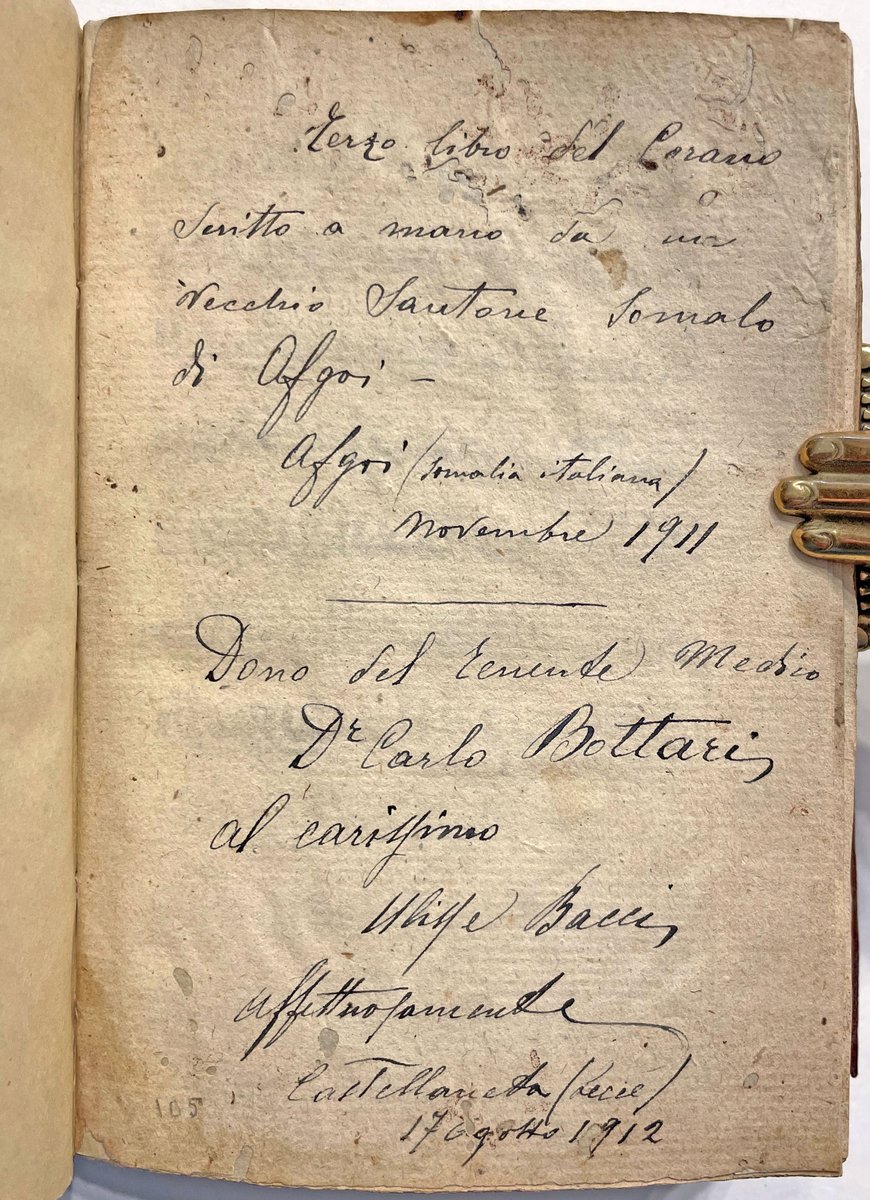
Afgooye (Somali: Afgooye, Arabic: أفجویى, Italian: Afgoi) is a town in the southwestern Somalia Lower Shebelle region. Afgooye is the third largest city of Southwest State. It's one of the oldest towns on the lower Shebelle valley, situated 30 kilometers north of Mogadishu. 4/ 

• • •
Missing some Tweet in this thread? You can try to
force a refresh














